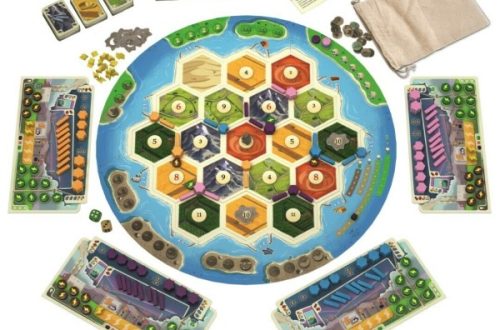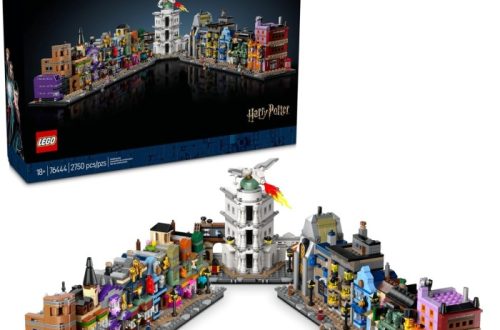Part 1: The Importance of Early Developmental Tools for 1-Year-Old
As a parent, you may wonder if educational toys for 1-year-old are really necessary. After all, your little one is just starting to explore the world around them, and it may seem like their playtime is just about having fun. However, early developmental tools and toys play a crucial role in your child’s cognitive and physical development. Here are a couple of reasons why they are important:
1. Stimulate Brain Development:
At the age of one, children’s brains are rapidly developing, and they are eager to soak in as much information as possible. Educational toys designed for 1-year-old are specifically crafted to stimulate their cognitive abilities. These toys often feature bright colors, different textures, and simple shapes to engage their senses and encourage exploration. By engaging with these toys, children can improve their fine and gross motor skills, spatial reasoning, and problem-solving abilities.

2. Encourage Social and Emotional Development:
Early developmental tools can also significantly impact a child’s social and emotional development. Many educational toys encourage children to engage in pretend play, which helps them understand social roles and emotions. This type of play also fosters creativity and imagination, which are essential for healthy emotional development. Additionally, playing with others or interacting with caregivers through these toys can help children build important social skills, such as sharing, taking turns, and communicating effectively.
Part 2: Types of Educational Toys for 1-Year-Old
Now that we understand the importance of early developmental tools for 1-year-old, let’s take a look at the different types of educational toys that are beneficial for their growth and development.
1. Sensory Toys:
At the age of one, children are at a crucial stage of sensory development, where they are starting to comprehend and engage with the world through their senses. This is why sensory toys, such as touch-and-feel books, soft blocks, and rattles, play a significant role. These toys are carefully designed to stimulate a child’s senses of touch, sight, and sound, offering a rich and immersive sensory experience. By engaging with these toys, children can enhance their sensory processing skills, developing a deeper understanding of the world around them. Through the tactile experiences provided by touch-and-feel books and soft blocks, as well as the auditory stimulation from rattles, children can embark on a sensory journey that supports their early learning and cognitive growth. These sensory toys not only captivate young minds but also lay the foundation for their future sensory exploration and comprehension.
2. Cause-and-Effect Toys:
Cause-and-effect toys are particularly beneficial for 1-year-old as they start to understand the concept of cause and effect. Toys such as shape sorters, stackable blocks, and simple puzzles allow children to manipulate objects and observe the outcomes of their actions. These toys support cognitive development, problem-solving skills, and hand-eye coordination, while also providing a sense of accomplishment when a task is completed successfully.

Part 3: Choosing the Right Educational Toys for 1-Year-Old
When it comes to selecting educational toys for your 1-year-old, it’s essential to consider their developmental needs and interests. Here are some tips for choosing the right toys for your little one:
1. Safety and Durability:
When selecting toys for 1-year-old, ensuring their safety is paramount. It is essential to consider several factors that contribute to the overall safety and suitability of the toys for young children. First and foremost, prioritize toys made of non-toxic materials. This precaution helps to minimize the risk of exposure to potentially harmful substances, safeguarding the well-being of the child as they engage with the toys. Additionally, non-toxic materials provide peace of mind for parents, ensuring that the toys are safe for children to handle and play with.
Furthermore, attention should be given to the size of the toys and the presence of small parts that could pose a choking hazard. It is imperative to opt for toys that do not have small components that could potentially be swallowed or inhaled. This reduces the risk of choking incidents and promotes a safe play environment for 1-year-old.
Moreover, considering the cleanliness and maintenance of the toys is essential. Look for toys that are easy to clean and sanitize, as young children often explore and interact with toys using their hands and mouths. Toys that can be easily washed and disinfected contribute to the overall hygiene and well-being of the child, minimizing the risk of exposure to germs and bacteria.
Additionally, prioritizing durable and well-made toys is crucial. Young children are naturally curious and active, engaging in play that can sometimes be robust. Choosing toys that are robust and can withstand the wear and tear of playtime ensures longevity and safety. It minimizes the risk of accidental breakage, sharp edges, or other potential hazards that may arise from less sturdy toys.
2. Age-Appropriate Features:
Consider your child’s current developmental stage when choosing toys. For example, if your child is just beginning to walk, push and pull toys or toys with wheels can help support their physical development. If your child is more interested in exploring different textures, look for toys with various materials for tactile exploration.

Part 4: The Benefits of Educational Toys for 1-Year-Olds
Educational toys for 1-year-old offer several benefits that contribute to their overall growth and development:
1. Enhance Cognitive Skills:
Engaging with educational toys offers 1-year-old a myriad of cognitive developmental benefits. These toys provide young children with the opportunity to enhance their cognitive skills, such as problem-solving, spatial awareness, and memory. By interacting with educational toys, children are able to develop important foundational cognitive abilities that will support their learning and growth.
Educational toys encourage children to explore cause-and-effect relationships, allowing them to understand the consequences of their actions. This fosters critical thinking and problem-solving skills as they navigate and experiment with the various elements of the toys. Through this hands-on exploration, children not only learn to anticipate outcomes but also develop the ability to devise solutions and adapt their approach based on their experiences, laying the groundwork for complex problem-solving abilities in the future.
Furthermore, educational toys provide children with opportunities to manipulate objects, fostering the development of their spatial awareness and fine motor skills. As children engage with toys that involve fitting, stacking, and arranging components, they acquire a better understanding of spatial relationships and shapes. These experiences contribute to the development of their spatial reasoning and problem-solving abilities, building a strong cognitive framework for their future learning and development.
Imaginative play, which is often facilitated by educational toys, also plays a pivotal role in cognitive development. Through the use of toys that encourage imaginative play, children are able to exercise their creativity and resourcefulness, promoting cognitive flexibility and innovation. This type of play allows children to explore different scenarios, construct narratives, and adapt to changing roles, fostering their cognitive adaptability and mental dexterity.
2. Foster Independence and Creativity:
Educational toys encourage children to play independently, which allows them to develop a sense of autonomy and confidence. In addition, these toys often promote open-ended play, where children can use their imagination to create their own scenarios and stories. This type of play fosters creativity and supports the development of a child’s unique interests and talents.
In conclusion, early developmental tools, such as educational toys for 1-year-old, play a crucial role in supporting children’s cognitive, physical, and emotional development. By providing age-appropriate and stimulating toys, parents and caregivers can create an environment that promotes learning, exploration, and growth during this critical stage of a child’s development.




